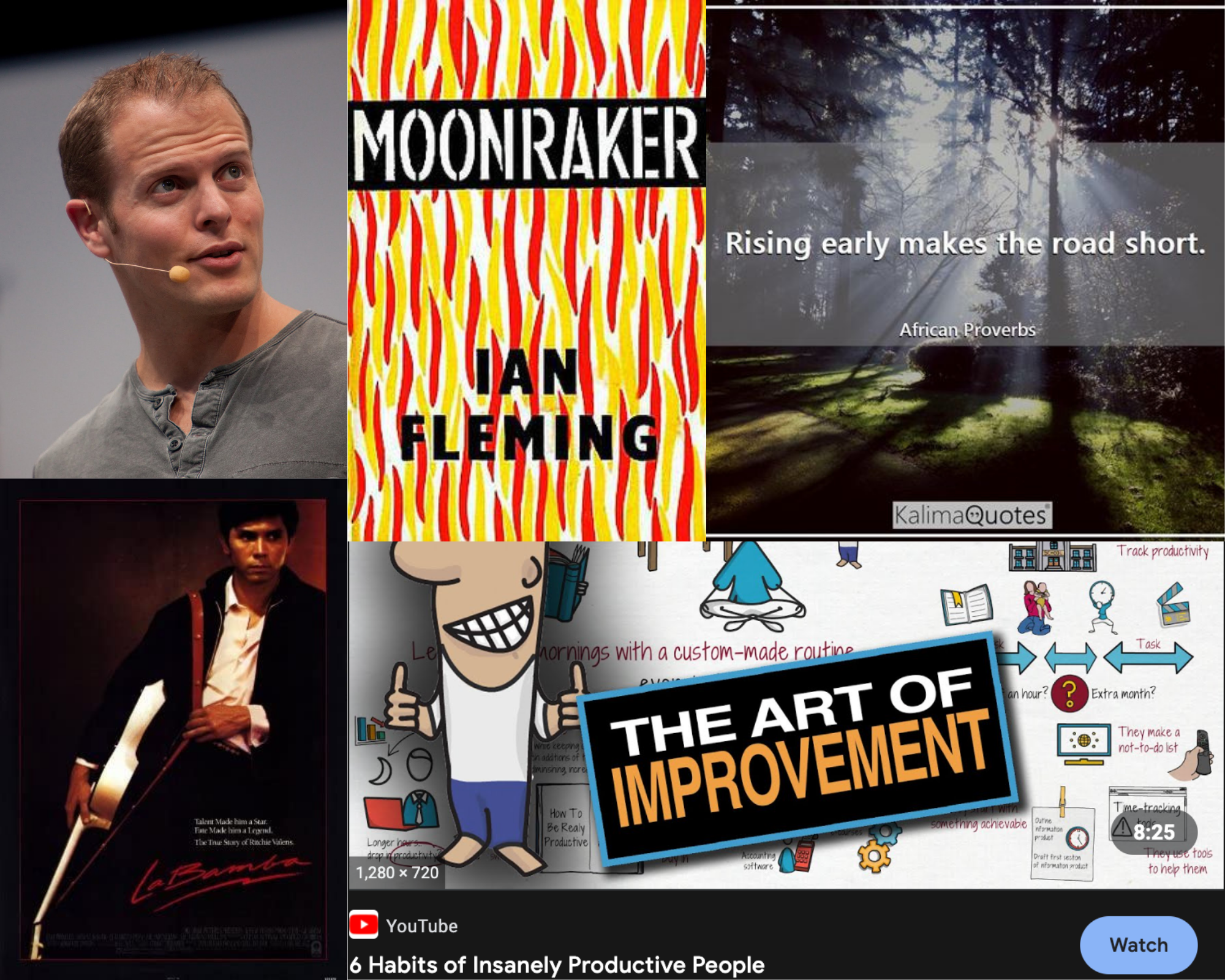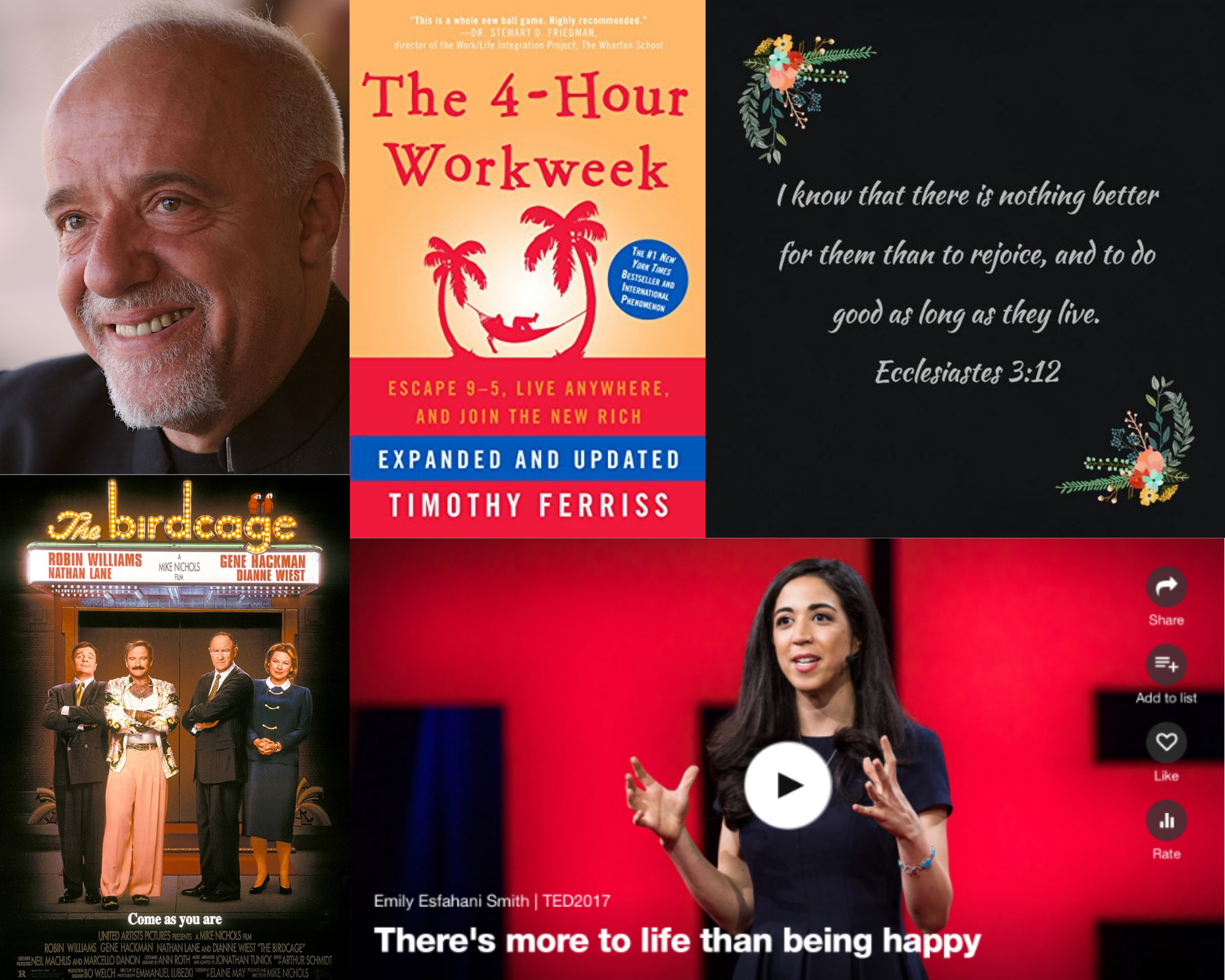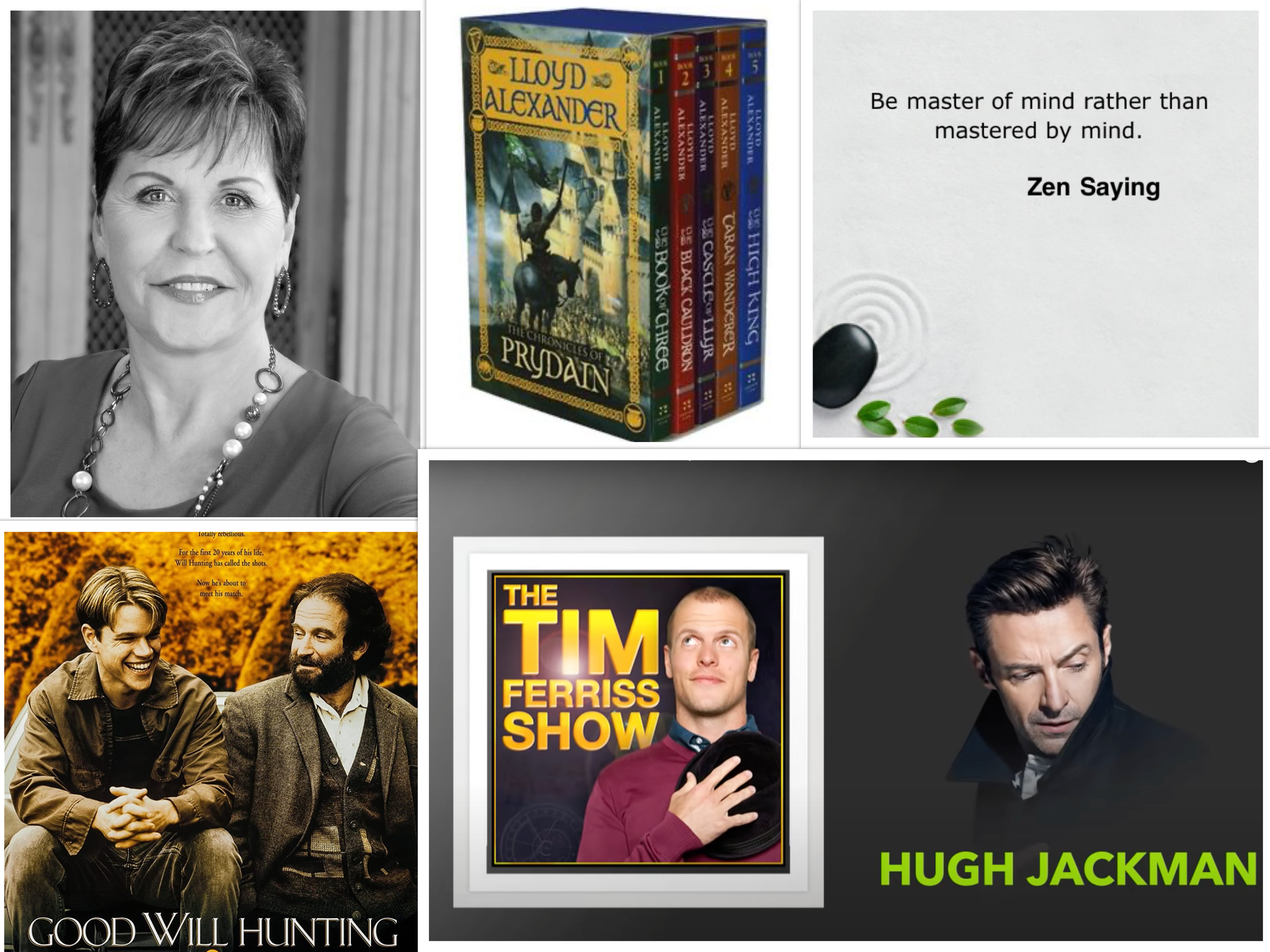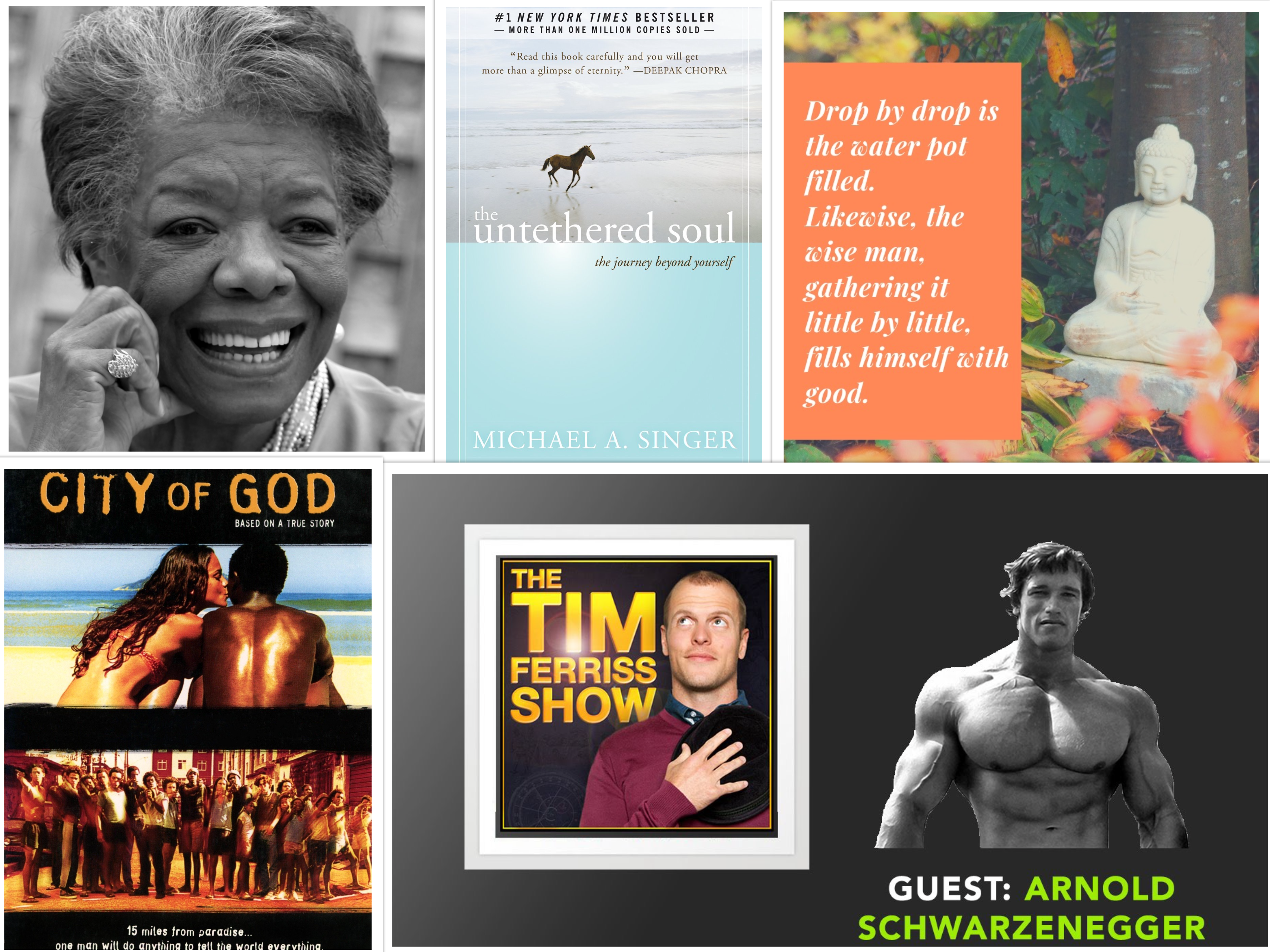Sunday Supplement #60 (July 3rd, 2022)
Below is another Sunday Supplement with a quote worth sharing, a book worth reading, a movie worth watching, brainfood worth consuming, and a spiritual passage worth pondering.
I hope you take something away from these recommendations that enriches your week ahead!
Quote of the Week:
“Focus on being productive instead of busy.”
– Tim Ferriss
Book of the Week:
Moonraker – Ian Fleming
James Bond is one of the most famous characters in pop culture. Most know his name from the popular movie series that debuted in the 1960s and continues today.
The movies are based on Ian Fleming’s novels about the British secret agent. Fleming worked in naval intelligence, but his novels depicted a more fanciful story for his main character.
Fleming had an admirable output in his late career as a novelist. He wrote 15 James Bond stories starting in 1952 before his death in 1964.
Moonraker often gets overlooked because of the film’s poor reception. The decision to take the plot to space like other successful space odysseys of the time was one of a few misguided decisions.
The book stays grounded and completely takes place in Britain. It starts with a look into Bond’s daily life before he investigates an ex-British soldier turned millionaire industrialist, Hugo Drax.
Drax works on building Moonraker, a prototype nuclear missile designed to defend England against Cold War threats.
Bond is later brought on to Drax’s staff, and the British secret agent works with undercover Special Branch Officer Gala Brand (whom he doesn’t sleep with) to uncover Drax’s plans.
Moonraker is Fleming’s third novel in the Bond series and arguably the best of the lot. It is a fun read and misses most of the negatives associated with Fleming’s works.
Movie of the Week:
The 1987 film La Bamba is a biographical story of the life and short-lived career of Richard Valenzuela— Ritchie Valens.
La Bamba starts when Valenzuela is 16, living with his mother and younger brother and sisters while working as a farmworker after school.
After Richard’s half-brother Bob returns from prison, the family moves to Southern California using Bob’s money.
The film covers Valenzuela’s family life (his brother’s conflicts in particular), his struggles fitting in the San Fernando Valley, and his rise to fame as Ritchie Valens.
There are many great performances in the film to admire, including Lou Diamond Phillips, Esai Morales, Rosanna DeSoto, and Joe Pantoliano. Phillips shines as Ritchie Valens.
In Sunday Supplement #3, I featured Stand and Deliver as the movie of the week. I discussed the story of how Phillips got the role after almost quitting acting and the imminent fame he would experience after the release of La Bamba.
La Bamba was selected in 2017 to be added to the National Film Registry of the US Library of Congress. It was deemed “culturally, historically, or aesthetically significant” and recommended for preservation.
There are many aspects to appreciate, and the overall positivity of the film comes through the story of the pioneer of Chicano rock and Latin rock.
Brainfood of the Week:
6 Habits of Insanely Productive People | The Art of Improvement
I’ve featured The Art of Improvement in three other Sunday Supplements. Their videos focus on helping viewers learn how to better themselves and be more productive.
In this video, the six habits of insanely productive people are starting the day right, controlling time, building buffer time, dealing with procrastination, getting stuff off their plate, and working less to achieve more.
The Art of Improvement breaks down each section and explains with examples and tools to show how to best utilize them.
In starting the day right, the video discusses how most insanely productive people start the day off early with exercise, mediation, or journaling.
For people who don’t love mornings, Hal Elrod of The Miracle Morning offers a method that helps people learn to love mornings. The answer is simply building a custom-made morning routine you would love to wake up to.
Controlling time is essential from the start to the day to help you be productive throughout. Blocking time, batching tasks, and tracking productivity help control time.
These are just brief highlights from two sections of the video. Check it out to get the rest of the information and pick up a few tips on productivity.
Closing Spiritual Passage:
“Rising early makes the road short.”
– African Proverb
This African proverb reminds me of the benefits of getting to things early. I don’t think it only refers to rising early, but that can be a valuable habit to cultivate too.
To me, rising early in the proverb means rising to the challenge. We can pick whatever challenge we want for ourselves, but meeting it early can make the road seem short.
In middle school, I was surprised when I learned that if I paid attention in school rather than goof off or watch the clock, classes went by faster. Also, when I did my homework right away, I had way more free time later to do what I wanted.
I look back at those realizations and believe they still have truths today. I try to fully immerse in whatever I’m doing, and I try to get things done early.
Doing my personal tasks before I start my work day has been a great way to rise early to my challenges, so I’m not too tired later.
The African proverb has many meanings, and I’m happy I came across it. It’s an excellent reminder for me. I hope you enjoy it too!
Make time to do something you want to do first, and have a blessed week ahead!
Comments closed



